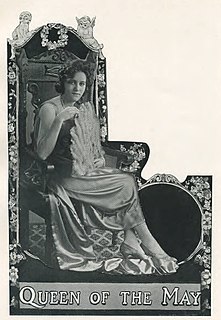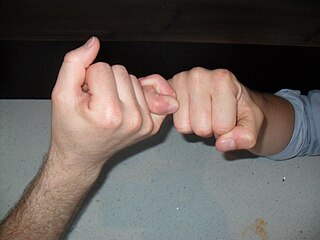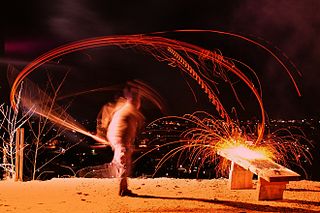 W
WArtificial cranial deformation or modification, head flattening, or head binding is a form of body alteration in which the skull of a human being is deformed intentionally. It is done by distorting the normal growth of a child's skull by applying force. Flat shapes, elongated ones, rounded ones, and conical ones are among those chosen or valued in various cultures. Typically, the shape alteration is carried out on an infant, as the skull is most pliable at this time. In a typical case, headbinding begins approximately a month after birth and continues for about six months.
 W
WThe bárányles is a local tradition in the southern Hungarian village Hosszúhetény and around the Zengő mountain, a night pilgrimage on Easter Sunday, in which only males can take part.
 W
WA bean-feast is an informal term for a celebratory meal or party, especially an annual summer dinner given by an employer to their employees, probably derived from a tradition in the Low Countries at Twelfth Night. By extension, colloquially, it describes any festive occasion with a meal and perhaps an outing. The word, and its shorter form "beano", are fairly common in Britain, less known in the United States. An alternative derivation refers the name to the eating of a dish of beans and bacon, and seems to trace to 1725, when Daniel Day of Wapping, London began to entertain friends near his estate at Fairlop in Essex on the first Friday in July.
 W
WA birthday cake is a cake eaten as part of a birthday celebration. Birthday cakes are often layer cakes with frosting served with small lit candles on top representing the celebrant's age. Variations include cupcakes, cake pops, pastries, and tarts. The cake is often decorated with birthday wishes and the celebrant's name.
 W
WBread and salt is a welcome greeting ceremony in some Slavic, Nordic, Baltic, Balkan and other European cultures as well as in Middle Eastern cultures. The tradition, known by local Slavic names was also adopted by three non-Slavic nations — Lithuanians, Latvians and Romanians (Romance) — all three of which are culturally and historically close to their Slavic neighbours. It is also common in Albania, Armenia, the Jewish diaspora, and the Middle East. This tradition has also been observed in spaceflight.
 W
WThe candy desk has been a tradition of the United States Senate since 1968, whereby a senator who sits at a particular desk near a busy entrance keeps a drawer full of candy for members of the body. The current occupant of the candy desk is Pennsylvania Senator Pat Toomey.
 W
WThe Chariton Collector was a local history and folklore magazine published biannually between 1980 and 1989 by students at Kirksville High School, Kirksville, Missouri. The magazine took its name from the Chariton River, which flows through northeast Missouri.
 W
WChristian tradition is a collection of traditions consisting of practices or beliefs associated with Christianity. These ecclesiastical traditions have more or less authority based on the nature of the practices or beliefs and on the group in question. Many churches have traditional practices, such as particular patterns of worship or rites, that developed over time. Deviations from such patterns are sometimes considered unacceptable or heretical.
 W
WChristmas in Iceland (Jól) starts four Weeks before proper Christmas, which begins on December 24 (Aðfangadagur) and ends thirteen days later on January 6 (Epiphany).
 W
WJul or jol is the term used for the Christmas holiday season in Scandinavia and parts of Scotland. Originally, "jul" was the name of a month in the old Germanic calendar. The concept of "jul" as a period of time rather than a specific event prevailed in Scandinavia; in modern times, "Jul" is a period of time stretching from the fourth sunday before Christmas eve, December 24, to (traditionally) mid-January at the date of Epiphany with december month and Christmas, and the week up to New Year, as its highlight. The modern English yule and yuletide are cognates with this term.
 W
WChristmas is celebrated throughout December and traditionally until St. Knut's Day on January 13. The main celebration and the exchange of gifts in many families takes place on Christmas Eve, December 24. The Lucia Day is celebrated during Advent, on December 13.
 W
WCrying The Neck is a harvest festival tradition once common in counties of Devon and Cornwall in the United Kingdom in Europe. The tradition declined following the invention of machines such as the combine harvester.
 W
WDonkey rides are a traditional feature of seaside resorts in the United Kingdom. Children are allowed to ride donkeys on a sandy beach for a fee in summer months while on holiday, normally led in groups at walking pace. Typically, the donkeys used to have their names on their harnesses so they could be identified by children and parents alike.
 W
WFit-up refers to the old style of theatre or circus where companies of travelling players or performers would tour from town or village to village in the provinces of Britain and elsewhere, particularly throughout the 19th-century. Taken from the noun 'Fit-up', the term is theatre slang to describe a stage or tent or booth that can be transported and erected quickly for shows. A fit-up company would be a travelling company of players which carries its scenery, props and costumes that can be set up in a temporary venue - which might be a large tent or a village hall. 'Fit-up' companies were particularly prevalent in 19th-century Ireland and a study of the performance histories of these has been made by Irish academics. The oldest of these Irish companies included the J. B. Carrickford Company and Tommy Conway/Keegan, who formed the Bohemian Minstrels in the early 19th-century.
 W
WGimjang (김장), also spelled kimjang, is the traditional process of preparation and preservation of kimchi, the spicy Korean fermented vegetable dish, in the wintertime. During the summer months, Kimchi is made fresh, from seasonal vegetables. For one month, starting from the tenth moon of the year, people prepare large quantities of kimchi, to provide nutrition throughout winter.
 W
WMehndi is a form of body art and temporary skin decoration usually drawn on hands or legs, common in the Indian Subcontinent, in which decorative designs are created on a person's body, using a paste, created from the powdered dry leaves of the henna plant. It is a popular form of body art among the women of India, Bangladesh, Pakistan, Nepal, and the Maldives, and resembles similar practices found in North Africa and the Middle East.
 W
WThe High table is a table for the use of fellows and their guests in large dining halls, where the students eat in the main space of the hall at the same time. They remain the norm at Oxford, Cambridge, Dublin and Durham universities, where the university is organized into colleges. Other academic institutions also have high tables.
 W
WHomecoming is the tradition of welcoming back former students and members and celebrating an organization's existence. It is a tradition in many high schools, colleges, and churches in the United States and to a lesser extent in Canada.
 W
WAn intangible cultural heritage (ICH) is a practice, representation, expression, knowledge, or skill considered by UNESCO to be part of a place's cultural heritage. Buildings, historic places, monuments, and artifacts are physical intellectual wealth. Intangible heritage consists of nonphysical intellectual wealth, such as folklore, customs, beliefs, traditions, knowledge, and language. Intangible cultural heritage is considered by member states of UNESCO in relation to the tangible World Heritage focusing on intangible aspects of culture. In 2001, UNESCO made a survey among States and NGOs to try to agree on a definition, and the Convention for the Safeguarding of Intangible Cultural Heritage was drafted in 2003 for its protection and promotion.
 W
WIvy Day is an annual ceremony in which an ivy stone is placed on either a residential, academic or administrative building or ground to commemorate academic excellence. The ceremony is most known for being practiced among older colleges in the Northeastern United States. It is most associated with the Ivy League and a group of small liberal arts college known as the Little Ivies. Some institutions announce members of Phi Beta Kappa and specialized honor designations for students. Some classes donate to the college, in the form gates, facades, and door outlines, by inscribing or creating their own version of symbolic icons of the college's seal or other prominent insignia. The ivy stones are usually decorated with the graduation date and a symbol that represents the college as a whole or the class as a whole. The most common ivy stone is one-by-two feet and is usually made out of workable stone.
 W
WIn a certain tradition, the journeyman years are a time of travel for several years after completing apprenticeship as a craftsman. The tradition dates back to medieval times and is still alive in France, Scandinavia and the German-speaking countries. Normally three years and one day is the minimum period of journeyman/woman. Crafts include roofing, metalworking, woodcarving, carpentry and joinery, and even millinery and musical instrument making/organ building.
 W
WMany societies have traditions which involve kissing. Kissing can indicate joy or be used as part of a greeting. Kissing involves the touching of one's lips to the lips or other body part, such as the cheek, head or hand of another person. Sometimes people often kiss their friends and or best friends as a way of giving luck or even showing feelings.
 W
WA lament or lamentation is a passionate expression of grief, often in music, poetry, or song form. The grief is most often born of regret, or mourning. Laments can also be expressed in a verbal manner in which participants lament about something that they regret or someone that they have lost, and they are usually accompanied by wailing, moaning and/or crying. Laments constitute some of the oldest forms of writing, and examples exist across human cultures.
 W
WThe Little Mouse, or La Petite Souris, is a fairy tale legend popular in most Francophone countries, most notably in France, and Wallonia. The legend of the Little Mouse ties in with that of the Tooth Fairy, the difference being that in this case, a little mouse sneaks in while the child is asleep, and replaces the lost baby tooth kept under his/her pillow with coins.
 W
WLying-in is the term given to the European forms of postpartum confinement, the traditional practice involving long bed rest before and after giving birth. The term and the practice it describes are old-fashioned or archaic, but it used to be considered an essential component of the postpartum period, even if there were no medical complications during childbirth.
 W
WNamaste, sometimes spoken as namaskar and namaskaram, is a customary, non-contact form of respectfully greeting and honoring the opposite person or group, this can be used always irrespective of what time of the day it is. In the contemporary era, it is found on the Indian subcontinent, Southeast Asia and among the Indian diaspora worldwide. The gesture is widely used in the parts of Southeast Asia where Indian religions are strong. It is used as a greeting. Namaste is usually spoken with a slight bow and hands pressed together, palms touching and fingers pointing upwards, thumbs close to the chest. This gesture is called añjali mudrā; the standing posture incorporating it is pranamasana.
 W
WTo make a pinky promise, or pinky swear, is a traditional gesture most commonly practiced amongst children involving the locking of the pinkies of two people to signify that a promise has been made. The gesture is taken to signify that the person can break the finger of the one who broke the promise. The tradition appears to be a relatively modern invention, possibly as a continuation of older finger traditions.
 W
WPunch and Judy is a traditional puppet show featuring Mr. Punch and his wife Judy. The performance consists of a sequence of short scenes, each depicting an interaction between two characters, most typically Mr. Punch and one other character who usually falls victim to Punch's slapstick. It is often associated with traditional British culture. The various episodes of Punch comedy—often provoking shocked laughter—are dominated by the clowning of Mr. Punch.
 W
WThe Convention for the Safeguarding of the Intangible Cultural Heritage is a UNESCO treaty adopted by the UNESCO General Conference on 17 October 2003.
 W
WScheibenschlagen is a traditional event in Central Europe in which glowing wooden disks are flung from a long hazelnut stick off a mountain side into the valley below.
 W
WA senior prank, also known as muck-up day in Australia and the United Kingdom, is a type of organized prank pulled by the senior class of a school, college, or university to cause chaos throughout the institution. The pranks are usually carried out at the end of the senior school year as a going away mark on the school, and in some cases have become something of a tradition.
 W
WSpanking is a common form of corporal punishment involving the act of striking the buttocks of another person to cause physical pain, generally with an open hand. More severe forms of spanking, such as switching, paddling, belting, caning, whipping, and birching, involve the use of a striking object held with the hand.
 W
WThe Tooth Fairy is a fantasy figure of early childhood in Western and Western-influenced cultures. The folklore states that when children lose one of their baby teeth, they should place it underneath their pillow or on their bedside table and the Tooth Fairy will visit while they sleep, replacing the lost tooth with a small payment.
 W
WIn many cultures there is a tradition of removing one's shoes in the home and places like church, temples and schools.
 W
WThe Valentine Phantom, often referred to as the Valentine Bandit in media reports, refers to an unidentified individual or group who each Valentine's Day secretly decorate the downtown area of a city in the United States with a series of red hearts printed on sheets of letter-sized paper.
 W
WWhip fighting can be done as a ritual, a show, or a sport, the latter also known as whip boxing.